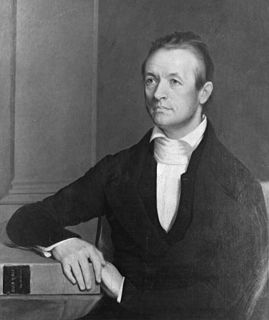A Quote by Nadezhda Tolokonnikova
I believe in fate. And in the depths of my soul, I am an Orthodox Christian. I think the New Testament is especially important. What Jesus and his disciples preached and did was a great thing.
Related Quotes
I'm a New Testament Christian. I reject and throw out titles. I'm not a fundamentalist, though I'm fundamental in all of my doctrine. I'm not an evangelical, because that means that I exclude the Catholics and main-liners, and Orthodox. I'm a believer who loves Jesus and I work with everybody else whatever their denomination; Catholic, Orthodox, charismatic, main line, evangelicals, anyone who loves Jesus.
He will be the best Christian who has Christ for his Master, and truly follows Him. Some are disciples of the church, others are disciples of the minister, and a third sort are disciples of their own thoughts; he is the wise man who sits at Jesus' feet and learns of Him, with the resolve to follow His teaching and imitate His example. He who tries to learn of Jesus Himself, taking the very words from the Lord's own lips, binding himself to believe whatsoever the Lord hath taught and to do whatsoever He hath commanded-he I say, is the stable Christian.
We can understand that the Fathers of the Church in the East wanted Apocalypse left out of the New Testament. But like Judas among the disciples, it was inevitable that it should be included. The Apocalypse is the feet of clay to the grand Christian image. And down crashes the image, on the weakness of these very feet. There is Jesus--but there is also John the Divine. There is Christian love--and there is Christian envy. The former would "save" the world--the latter will never be satisfied till it has destroyed the world. They are two sides of the same medal.
At this time there was a wise man who was called Jesus. And his conduct was good, and [he] was known to be virtuous. And many people from among the Jews and the other nations became his disciples. Pilate condemned him to be crucified and to die. And those who had become his disciples did not abandon his discipleship.
Though we have clear and full scriptures in the New Testament for abolishing the Ceremonial law, yet we nowhere read in all the new Testament of the abolishing of the Judicial law, so far as it did concern the punishing of sins against the Moral law, of which Heresy and seducing of souls is one, and a great one. Once God did reveal his will for punishing those sins by such and such punishments. He who will hold that the Christian Magistrate is not bound to inflict such punishments for such sins, is bound to prove that those former laws of God are abolished, and to shew some scripture for it.
If we move in the direction of biblial absolutism how can we escape turning the New Testament into a Christian Torah and the gospel into a new law? Once we do that, religious fascism with all its sectarian ugliness cannot be far away. Far better a mistaken Christian (a heretic) who has somehow caught the Spirit of Christ, than an orthodox Protestant who thinks that the Spirit is mediated to him through the letter of correct theology.
Q. What is your view of the daily discipline of the Christian life - the need for taking time to be alone with God? Lewis: "We have our New Testament regimental orders upon the subject. I would take it for granted that everyone who becomes a Christian would undertake this practice. It is enjoined upon us by Our Lord; and since they are his commands, I believe in following them. It is always just possible that Jesus Christ meant what he said when He told us to seek the secret place and to close the door.
What I believe is not what I say I believe; what I believe is what I do. I used to say that I believed it was important to tell people about Jesus, but I never did. A friend kindly explained that if I do not introduce people to Jesus, then I don't believe Jesus is an important person. It doesn't matter what I say. We live for what we believe.
I am a Christian and I don't want there to be any confusion about what I believe or who I am. I don't believe gay people are going to hell. I believe that judgment is left to the one upstairs and I believe Jesus is all about love. If I can live my life even just a smidgen the way God made his son for us as an example, I'm happy. I do not judge other people for what they believe, but for me, this is what works.
Seminary also introduced me to the historical study of Jesus and Christian origins. I learned from my professors and the readings they assigned that Jesus almost certainly was not born of a virgin, did not think of himself as the Son of God, and did not see his purpose as dying for the sins of the world. .. I also found the claim that Jesus and Christianity were the only way of salvation to be troublesome.
According to the Burman system, there is no escape. According to the Christian system, there is. Jesus Christ has died in the place of sinners, has borne their sins; and now those who believe on Him, and become His disciples, are released from the punishment they deserve. At death, they are received into Heaven and are happy forever.








































